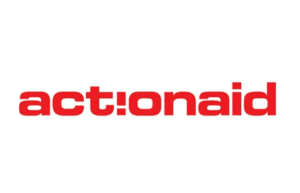ActionAid develops draft sexual harassment guideline for employers
 ActionAid Ghana has developed a “Draft Sexual Harassment Guideline” for informal sector employers to adopt and help reduce sexual harassment in the informal workspace.
ActionAid Ghana has developed a “Draft Sexual Harassment Guideline” for informal sector employers to adopt and help reduce sexual harassment in the informal workspace.
Major highlights of the seven-page document include “Types of sexual harassment at the informal workspace”; “The company’s responsibilities in preventing and addressing sexual harassment”; “Individual responsibilities and protection of women in informal workspaces from sexual harassment, exploitation and abuse”; and “model procedure for formal complaints mechanism”.
The guideline defined sexual harassment as any behaviour of a sexual nature that affects the dignity of women and men, which is considered as unwanted, unacceptable, inappropriate and offensive to the recipient, and that creates an intimidating, hostile, unstable or offensive work environment.
Madam Abiba Nibaradun, Programme Officer, ActionAid Ghana, Wa Office, said after developing the document, it was important to present it to the informal sector employers for them to understand and make inputs where necessary.
She was optimistic that the guideline when finalized and adopted by actors in the informal workspace, it would help change the narrative as far as sexual harassment was concerned.
Presenting the guideline to a meeting of over 45 participants, Mr Lord Pobi Bekai, Project Officer, ActionAid Ghana, Wa Office, noted that the “Draft Sexual Harassment Guideline” was necessitated by the fact that the laws of Ghana, specifically the Domestic Violence Act does not cover informal sector workers in bars, restaurants, shops and saloons.
He said the absence of a sexual harassment law subjected it’s definition to the discretion of investigators who may choose to be guided by the limited definitions in the amendments to the Criminal Code Amendment Act, 1998 (Act 554).
Mr Bekai pointed out that evidence-based data such as highlighted from ActionAid Ghana’s study pointed to the fact that survivors of violence in the informal workspace were left outside the formal justice system.
“Their informal work status precludes them from any legal protection because their work is not recognized as work”, he said.
“The main purpose of this ‘Draft Sexual Harassment Charter’ is to strengthen the Young Urban Women’s Movement of ActionAid Ghana to engage with employers and businesses to not only adopt the charter to guide employers in handling all sexual exploitation but also to protect themselves from sexual harassment and sexual exploitation”, he explained.
Mr Nicholas Kpere, a participant described the training on the International Labour Organization Convention 190 (ILO C190) and the Sexual Harassment Guideline as very important to them.
He said guidelines would be adopted to help to reduce or eliminate violence and sexual harassment in the informal workspace.
Per this, Mr Kpere said they would create posters that communicated against sexual harassment at vantage points in their workplaces to discourage clients from attempting such acts on their staff.
Mr Richmond Nimo, Delagio Hotel, Wa and also a participant noted that the aspect of having contracts with even interns was for him a novelty that would protect them even as employers against legal issues from employees.
He said the training allowed them to put a committee in place to receive complaints of sexual harassment from employees of the informal sector and deal with them expressly to protect their staff whose rights may have been abused.
Source: GNA
